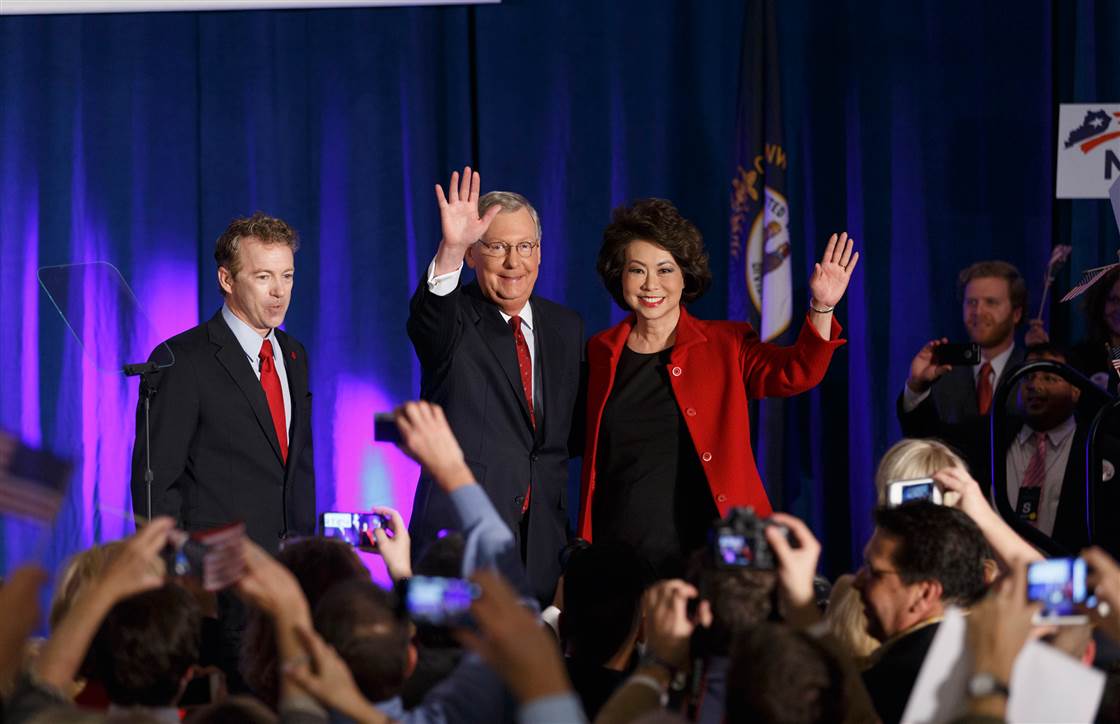By: Shaun Kleber

At this time last year, 53 percent of Americans blamed Republicans for the federal government shutting down. Yet earlier this month, in what seems like an about-face, voters overwhelmingly supported them to run that same federal government.
As Republican voters and politicians alike celebrate their victory, it is important to take this opportunity to reflect on what the election results mean. Election outcomes can be a powerful tool in discerning what the American people want, but it is also easy to misinterpret or overstate the message from the electorate. Since the election, various Republican politicians have said that the results demonstrate a shift in the country’s mindset toward more conservative policies. However, public opinion polls paint a different picture.
While election outcomes tell us which person, from a ballot of two or three options, people prefer as a representative in Washington, DC, public opinion polls can give a more nuanced insight into the motivations and desires behind those choices. Polls from the Pew Research Center debunk the myth that many Republicans have been perpetuating since the election—that Americans are tired of the big-government policies of Democrats and that they voted so overwhelmingly Republican because they support more conservative policies. In reality, 44 percent of Americans approve of Republican congressional leaders’ policies and plans for the future, while 43 percent disapprove. With a similarly narrow margin, 41 percent of Americans believe Republican congressional leaders should take the lead in solving the nation’s problems, while 40 percent say President Obama should take the lead.
So if Americans did not vote Republican because they support their policies or leadership more than those of Democrats, then why was the electoral map painted so red at the end of the last election? Because the American people do want change, but not in the way Republican congressmen expect. More specifically, they want action in a government that has only become more dysfunctional and unproductive with time. Voters are frustrated with the politicking of Washington and the endemic inaction of the federal government. The lopsided results of the midterm election demonstrated more of an indictment of the Democrat-controlled government of recent years rather than a strong support of Republican rule.
This is not to say that voters do not support Republican rule or that Republicans will do a poor job while controlling Congress for at least the next two years. It is rather an attempt to refocus the interpretation of the election results. Republicans do recognize that voters sent a loud and clear message in this election, but they need to see it as a desire for bipartisan and productive action rather than a desire for blind and bull-headed Republican rule.
In the days after President Obama and congressional Democrats “got beat,” as Obama put it, he has demonstrated a renewed commitment to action and to using these next two years to fulfill policy promises and enact long-term change. Within just two weeks after the midterm elections, Obama had announced major executive actions or policy initiatives in the areas of climate change, immigration, and net neutrality, which demonstrates a strong desire for action with or without a cooperative Congress.
These high-profile actions were likely not in direct response to the midterm elections but were rather the result of months of planning and negotiations. Still, however, these back-to-back moves reinforce an image of a lame-duck president set to make moves and establish a legacy. In fact, his advisers have described him as feeling liberated after the midterm elections—no longer having to be tethered to the short-term election concerns of his party’s leadership in Congress or hold back on policy initiatives in fear of adversely affecting vulnerable Democratic candidates.
Republicans claim that, in taking these executive actions, Obama is ignoring what they perceive to be a clear message from voters—a message of rejection of Obama and support of Republicans. “The president is completely ignoring the will of the American voters, who turned out on Election Day and overwhelmingly elected people who wanted to change the direction of the country,” Senator John Barrasso of Wyoming said. “Even today, the new polls show Americans would rather have Republicans make the agenda changes than the President.”
However, it is difficult to distill the will of the American people from an election with the lowest voter turnout in 72 years—36.3 percent of eligible voters. While his interpretation is one potential message from voters, another is that Americans simply want a productive government, and the low voter turnout demonstrates their apathy toward the government.
Change and action is what Obama has demonstrated a desire to bring to his last two years in office, but not at the expense of Republicans in Congress. Obama has said repeatedly that bipartisan and effective legislation from Congress would trump his executive actions, and he has encouraged that.
Throughout campaigns, Republican candidates—now Republican congressmen—spoke about repealing the Affordable Care Act and undoing other policies passed by the Obama Administration. With a unified Congress, there is a real opportunity for getting meaningful and effective legislation on Obama’s desk. However, if Republicans want any hope of moving this government in the right direction and potentially taking the White House in 2016, they should use the next two years to take action for the future rather than undoing the actions of the past.
